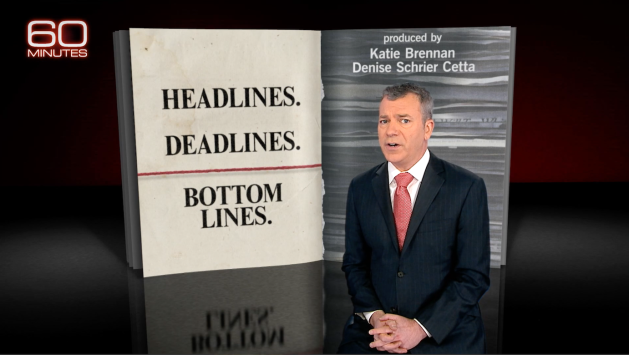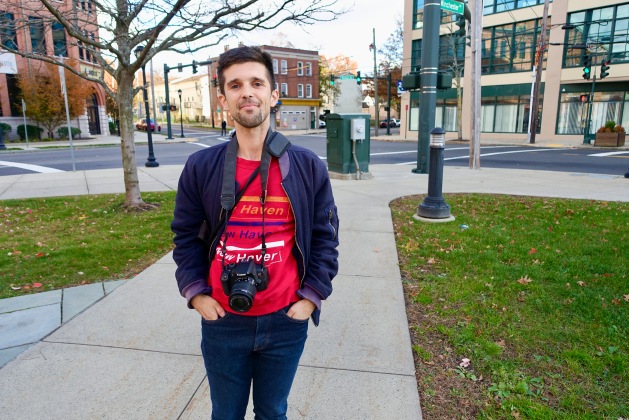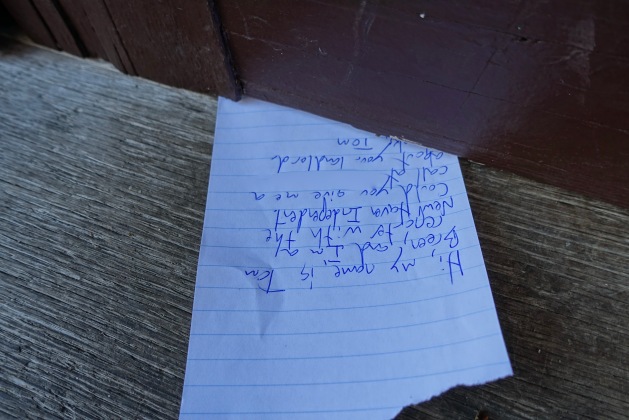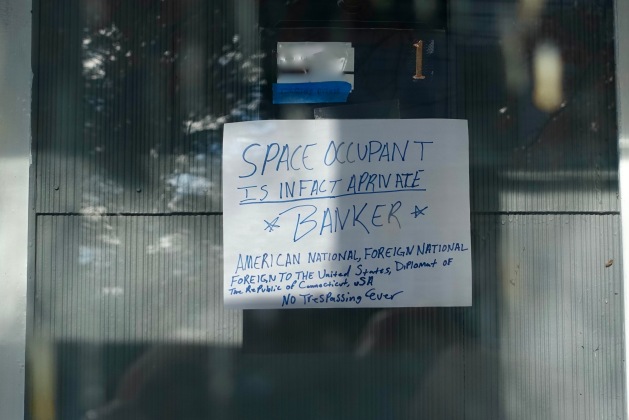
Photo (cc) 2021 by Blink O’fanaye
Previously published at GBH News.
Hopes were running high when we all turned the calendar to 2021. Would the worst 12 months in anyone’s memory give way to the best year of our lives?
Not quite. Yes, it was better than 2020, but 2021 was hardly a return to paradise. The joy of vaccinations gave way to the reality that COVID-19 is likely to be with us for a long time. The economy recovered rapidly — accompanied by the highest rate of inflation in 40 years. Worst of all, the end of the Trump presidency morphed into a crisis of democracy that is starting to look as ominous as the run-up to the Civil War.
During the past year, I’ve been struggling to make sense of the highs, the lows and the in-betweens through the prism of the media. Below are 10 of my GBH News columns from 2021. They’re in chronological order, with updates on many of the pieces posted earlier this year. If there’s a unifying theme, it’s that we’re in real trouble — but that, together, we can get through this.
• The end of the Trump bump, Jan. 27. Even as he was denouncing journalists as “enemies of the people,” Donald Trump, both before and during his presidency, was very, very good for the media. Cable TV ratings soared. The New York Times and The Washington Post signed up subscribers by the bucketload. Several weeks after Trump departed from the White House, though, there were questions about what would happen once he was gone. We soon got an answer. Even though Trump never really left, news consumption shrank considerably. That may be good for our mental health. But for media executives trying to make next quarter’s numbers, it was an unpleasant new reality.
• Local news in crisis, Feb. 23. The plague of hedge funds undermining community journalism continued unabated in 2021. The worst newspaper owner of them all, Alden Global Capital, acquired Tribune Publishing and its eight major-market papers, which include the Chicago Tribune, New York’s Daily News and, closer to home, the Hartford Courant. When the bid was first announced, there was at least some hope that one of those papers, The Baltimore Sun, would be spun off. Unfortunately, an epic battle between Alden and Baltimore hotel mogul Stewart Bainum resulted in Alden grabbing all of them. Bainum, meanwhile, is planning to launch a nonprofit website to compete with the Sun that will be called The Baltimore Banner.
• The devolution of Tucker Carlson, April 15. How did a stylish magazine writer with a libertarian bent reinvent himself as a white-supremacist Fox News personality in thrall to Trump and catering to dangerous conspiracy theories ranging from vaccines (bad) to the Jan. 6 insurrection (good)? There are millions of possible explanations, and every one of them has a picture of George Washington on it. Carlson got in trouble last spring — or would have gotten in trouble if anyone at Fox cared — when he endorsed “replacement theory,” a toxic trope that liberal elites are deliberately encouraging immigration in order to dilute the power of white voters. A multitude of advertisers have bailed on Carlson, but it doesn’t matter — Fox today makes most of its money from cable fees. And Carlson continues to spew his hate.
• How Black Lives Matter exposed journalism, May 26. A teenager named Darnella Frazier exposed an important truth about how reporters cover the police. The video she recorded of Minneapolis police officer Derek Chauvin literally squeezing the life out of George Floyd as he lay on the pavement proved that the police lied in their official report of what led to Floyd’s death. For generations, journalists have relied on law enforcement as their principal — and often only — source for news involving the police. That’s no longer good enough; in fact, it was never good enough. Frazier won a Pulitzer Prize for her courageous truth-telling. And journalists everywhere were confronted with the reality that they need to change the way they do their jobs.
• The 24th annual New England Muzzle Awards, July 1. For 24 years, the Muzzle Awards have singled out enemies of free speech. The Fourth of July feature made its debut in The Boston Phoenix in 1998 and has been hosted by GBH News since 2013, the year that the Phoenix shut down. This year’s lead item was about police brutality directed at Black Lives Matter protesters in Boston and Worcester the year before — actions that had escaped scrutiny at the time but that were exposed by bodycam video obtained by The Appeal, a nonprofit news organization. Other winners of this dubious distinction included former Boston Mayor Marty Walsh, retired Harvard Law School professor Alan Dershowitz and the aforementioned Tucker Carlson, who unleashed his mob to terrorize two freelance journalists in Maine.
• How to help save local news, July 28. Since 2004, some 2,100 newspapers have closed, leaving around 1,800 communities across the country bereft of coverage. It’s a disaster for democracy, and the situation is only growing worse. The Local Journalism Sustainability Act, a bipartisan proposal to provide indirect government assistance in the form of tax credits for subscribers, advertisers and publishers, could help. The bill is hardly perfect. Among other things, it would direct funds to corporate chains as well as to independent operators, thus rewarding owners who are hollowing out their papers. Nevertheless, the idea may well be worth trying. At year’s end, the legislation was in limbo, but it may be revived in early 2022.
• Democracy in crisis, Sept. 29. As summer turned to fall, the media began devoting some serious attention to a truly frightening development: the deterioration of the Republican Party into an authoritarian tool of Trump and Trumpism, ready to hand the presidency back to their leader in 2024 through a combination of antidemocratic tactics. These include the disenfranchisement of Black voters through partisan gerrymandering, the passage of new laws aimed at suppressing the vote and the handing of state electoral authority over to Trump loyalists. With polls showing that a majority of Republicans believe the 2020 election was stolen, it’s only going to get worse in the months ahead.
• Exposing Facebook’s depravity, Oct. 27. The social media giant’s role in subverting democracy in the United States and fomenting chaos and violence around the world is by now well understood, so it takes a lot to rise to the level of OMG news. Frances Haugen, though, created a sensation. The former Facebook executive leaked thousands of documents to the Securities and Exchange Commission and spoke out — at first anonymously, in The Wall Street Journal, and later on “60 Minutes” and before a congressional committee. Among other things, the documents showed that Facebook’s leaders were well aware of how much damage the service’s algorithmic amplification of conspiracy theories and hate speech was causing. By year’s end, lawyers for Rohingya refugees from Myanmar were using the documents to sue Facebook for $150 billion, claiming that Mark Zuckerberg and company had whipped up a campaign of rape and murder.
• COVID-19 and the new normal, Nov. 17. By late fall, the optimism of June and July had long since given way to the reality of delta. I wrote about my own experience of trying to live as normally as possible — volunteering at Northeastern University’s long-delayed 2020 commencement and taking the train for a reporting trip in New Haven. Now, of course, we are in the midst of omicron. The new variant may prove disastrous, or it may end up being mild enough that it’s just another blip on our seemingly endless pandemic journey. In any case, omicron was a reminder — as if we needed one — that boosters, masking and testing are not going away any time soon.
• How journalism is failing us, Dec. 7. Washington Post columnist Dana Milbank created a sensation when he reported the results of a content analysis he had commissioned. The numbers showed that coverage of President Joe Biden from August to November 2021 was just as negative, if not more so, than coverage of then-President Trump had been during the same four-month period a year earlier. Though some criticized the study’s methodology, it spoke to a very real problem: Too many elements of the media are continuing to cover Trump and the Republicans as legitimate political actors rather than as what they’ve become: malign forces attempting to subvert democracy. The challenge is to find ways to hold Biden to account while avoiding mindless “both sides” coverage and false equivalence.
A year ago at this time we may have felt a sense of optimism that proved to be at least partly unrealistic. Next year, we’ll have no excuses — we know that COVID-19, the economy and Trumpism will continue to present enormous challenges. I hope that, at the end of 2022, we can all say that we met those challenges successfully.
Finally, my thanks to GBH News for the privilege of having this platform and to you for reading. Best wishes to everyone for a great 2022.











